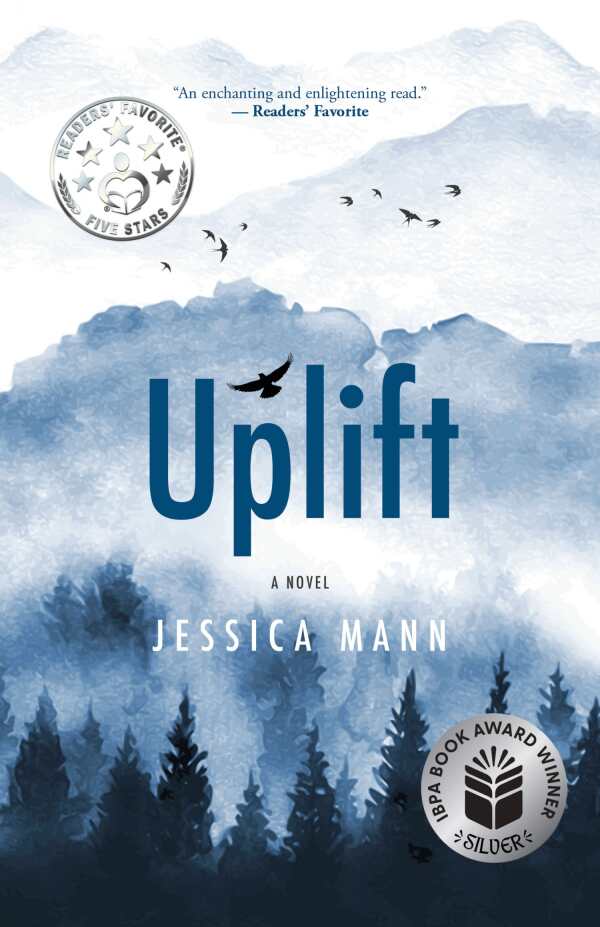
Uplift
The notion that all creatures have the capacity to do either harm or good is exemplified in the ecoconscious novel Uplift.
In Jessica Mann’s delicate allegorical novel Uplift, a bird living in the Anthropocene comes of age and works to protect her community’s environment.
Columbina, a Clark’s Nutcracker, was born in a mountainous forest. She grows up captivated by her mother’s tales of their ancestors, the Valiant Ones. Her feathers have a white patch that hints that she is a Valiant One, too. Her family is proud of their heritage, and Columbina feels destined for great feats.
In the course of growing up, Columbina and her siblings eat the seeds of a whitebark pine, Albrea; learn about being nutcrackers; and become better at flying. Columbina herself deals with sibling rivalries and questions her parents, whose traditions sometimes feel stifling to her. She craves adventure; they expect her to find a mate. Further tension is generated when Columbina hears reports that human beings are engaging in deforestation and land encroachment; she wonders if her family will be affected.
The changing seasons that determine the rhythms of the nutcrackers’ lives also direct the novel’s progression. When a scorching summer causes the lake to shrink, Columbina’s ingenuity and ability to rally other creatures to help is proven. This event also prompts her father to exile her for her perceived disrespect and interference, though. During her banishment, Columbina learns more about humans, and she later returns home to warn her clan.
The book is overt about delivering its ecoconscious message. The forest is fleshed out as both wondrous and treacherous: Baby hummingbirds are captured by a hungry marten; some of Columbina’s friends die, forcing her to mature. Through these and other incidents, the prose lavishes attention on the thoughts and emotions of flora and fauna, who are anthropomorphized throughout.
Still, while the narrative incorporates the perspectives of other beings, including Albrea, particular attention is paid to Columbina’s close-knit, sometimes troubled clan and to Columbina’s own coming-of-age; questions arise about how she might be tested. She befriends a dragonfly, a hummingbird, and a kingfisher, learning to be more open-minded because of these connections. In time, she inspires others to change their views, too. The idea that humans, Columbina, and her friends might benefit from letting one another thrive despite their differences comes through in a clear way. The forest creatures’ ultimate confrontations with the humans, and the resolution of that storyline, is rushed through, though.
In the enchanting allegorical novel Uplift, an ambitious young bird learns how to be discerning and finds beauty in interdependence.
Reviewed by
Karen Rigby
Disclosure: This article is not an endorsement, but a review. The publisher of this book provided free copies of the book and paid a small fee to have their book reviewed by a professional reviewer. Foreword Reviews and Clarion Reviews make no guarantee that the publisher will receive a positive review. Foreword Magazine, Inc. is disclosing this in accordance with the Federal Trade Commission’s 16 CFR, Part 255.
